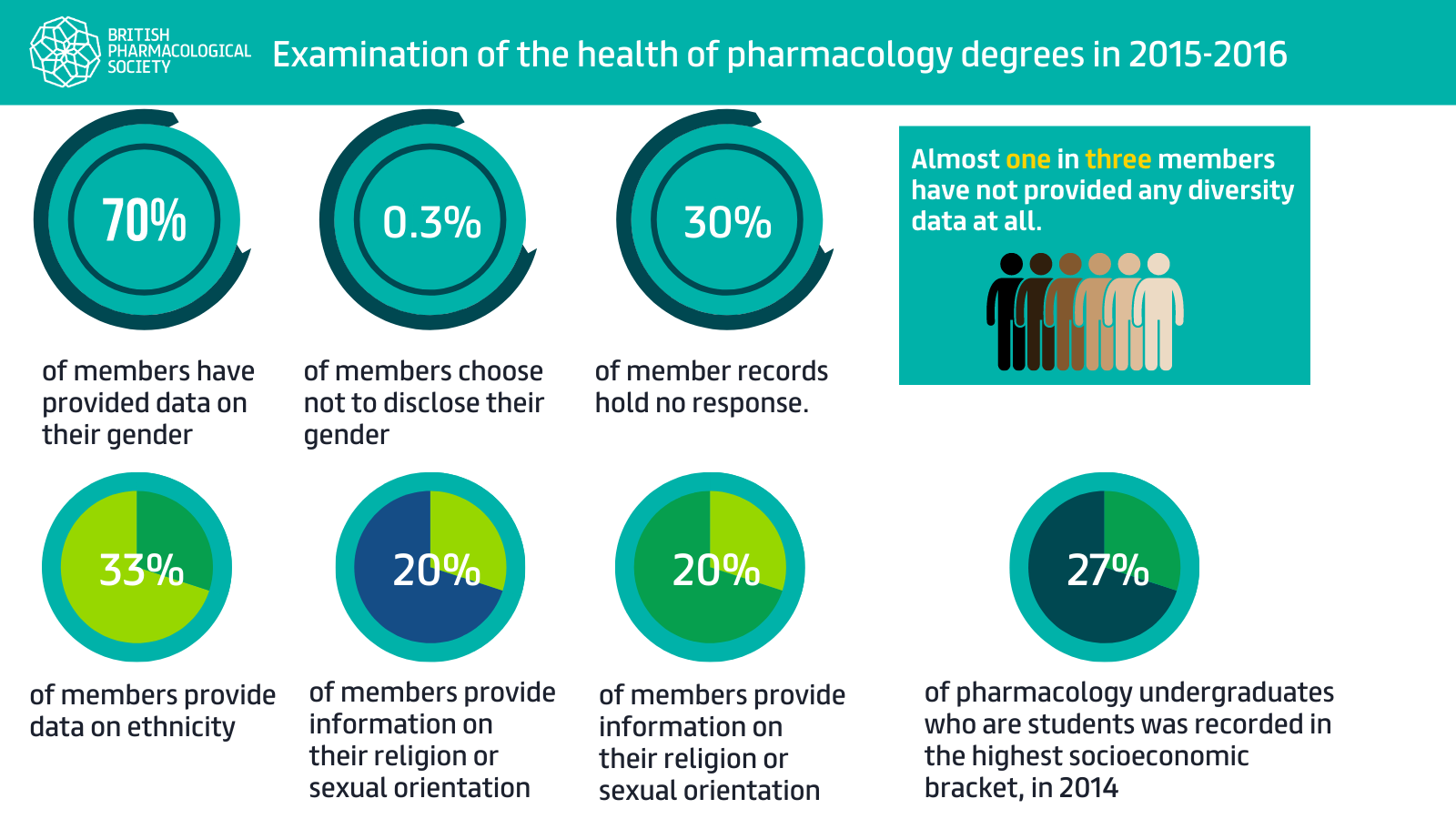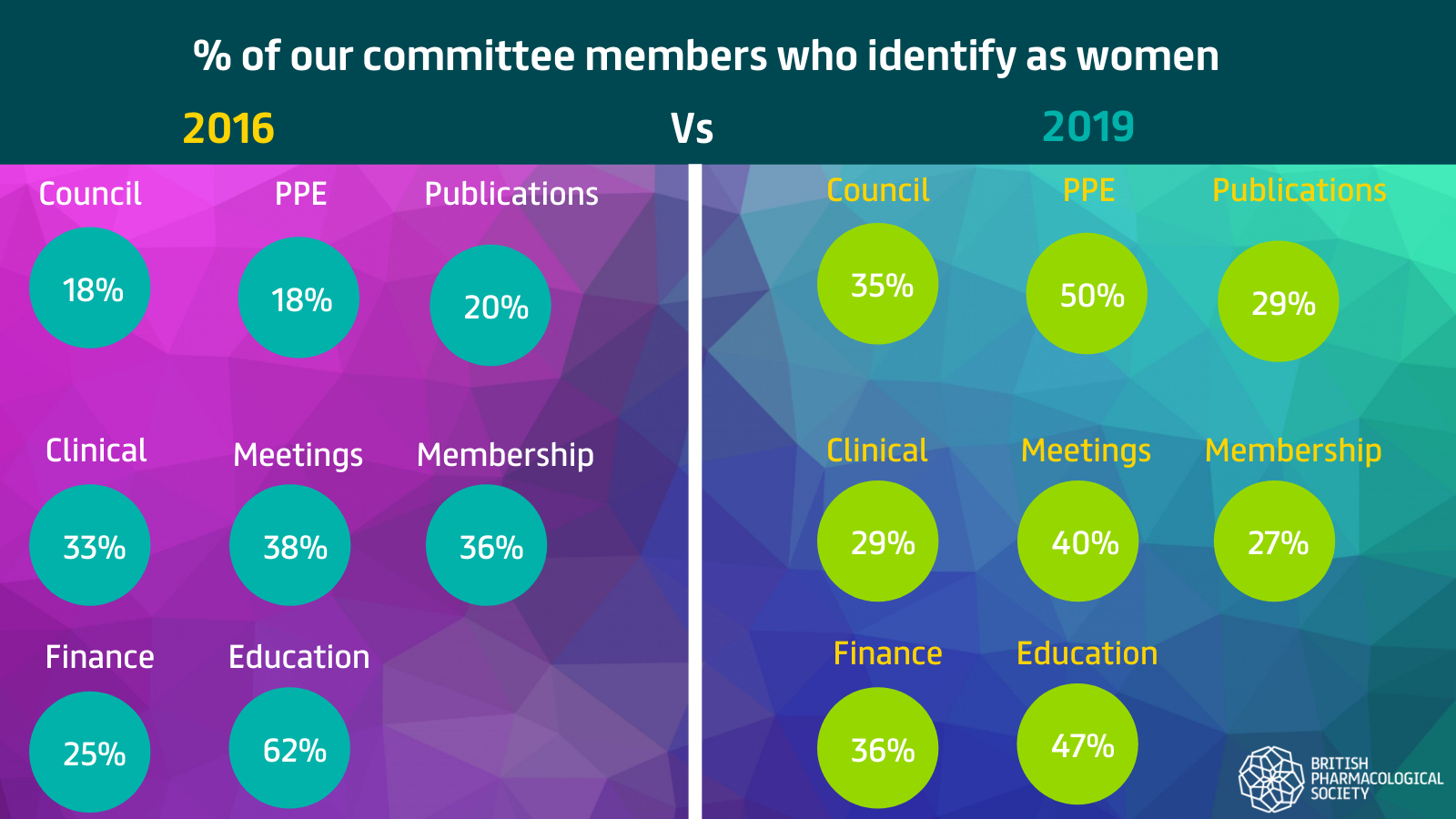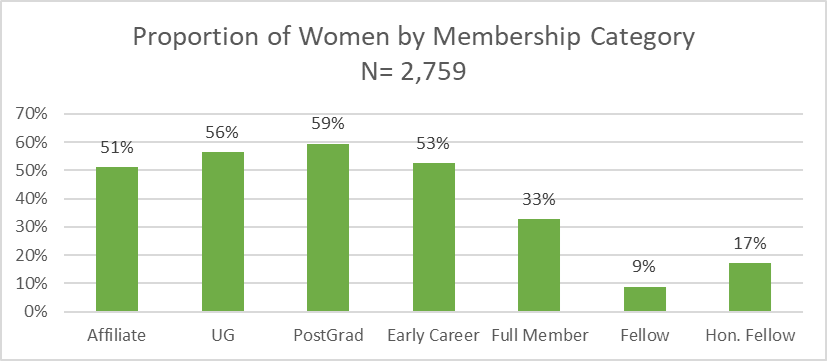Our ambition is that no one should face barriers when it comes to their career or their ability to benefit from pharmacology research. However, we know we are not there yet.
One way of looking at the problem is in terms of representation that is, what the diversity of the group in question is. Another important aspect is their experience, that is, what is the environment like for individuals from a range of identities and backgrounds and where and how might this fall short. Part of the problem is that we do not have good data on either.
HHowever, there is no denying that there is a widespread problem in the life sciences of which pharmacology is a part. This is clearly because the scientific community exists in a wider social setting, where the challenges remain extensive – as illustrated by global protests such as #blacklivesmatter and #metoo. Social inequalities and injustices have deep historical roots. It is imperative that we see these challenges in their fullest extent, but that we focus on making change in our area of influence. We hope that our membership of EDIS Group (Equality, Diversity & Inclusion in Science and Health) and wider networks will help us work with partner organisations to achieve more than we could alone. It is important to learn and act together, especially when trying to understand a complex data picture.
When it comes to drilling down into the data for pharmacology, there are limitations on what we can currently understand. This is in part because not all pharmacologists are members of the Society, in part because our data collection and reporting needs improving, in part because pharmacologists work across a range of sectors so it is hard to collate and track them, and in part because the data collected by the Higher Education Statistics Agency (HESA) combines pharmacology and pharmacy data in its reporting. It is critical that we address issues with our own data collecting and reporting, but also that we consider how to monitor the diversity of the discipline as a whole. Given the extent of the challenge in collecting rigorous data for pharmacology alone, we need to consider whether we may be wiser to approach the issues of representation and experience of defined groups in partnership with other organisations. This will be part of our ongoing work.
In terms of ‘who is doing the research’, we do know that only 37% of our members identify as women, that they are under-represented on our committees (see figure 1) and in senior membership categories (see figure 2), although the former is improving because of targets set by the Society.

We also know that:
- 70% of members have provided data on their gender, 0.3% choose not to disclose their gender and 30% of member records hold no response. As a higher proportion of members provide data on gender than on any other aspect of diversity, this means that almost one in three members have not provided any diversity data at all.
- Just one third of members provide data on ethnicity (33%).
- Just one in five members (20%) provide information on their religion or sexual orientation.
- An increasing number of pharmacology undergraduates are students in the highest socioeconomic bracket, which grew from 22% in 2007 to 27% in 2014.[1] The Society collected this data as part of an examination of the health of pharmacology degrees in 2015/6, and it would be helpful to revisit this.
Our data on experience is even more limited. We want to take the opportunity to ask more questions about the experience of individuals, so we actively listen to the issues people face. We also want to understand ‘what works’ in terms of contributing to a positive experience.
 Figure 1. Membership of committees by gender, 2016 v 2019, extracted from the data used to inform the external review
Figure 1. Membership of committees by gender, 2016 v 2019, extracted from the data used to inform the external review
 Figure 2. Proportion of women by membership category, extracted from data used to inform the external review
Figure 2. Proportion of women by membership category, extracted from data used to inform the external review
How can you get involved?
We want to make change. As part of this, and our work going forwards, we have opened a call for submissions to hear about what you are already doing in this area, and to explore how we may be able to work together. Please send a short summary of your work on equality, diversity and inclusion to Sophia McCully (Policy Officer) as soon as possible, indicating whether you would be interested in discussing this at our annual meeting .
If you feel that there is anything else we should be thinking about or focusing on, please also get in touch.
To discuss this work, please contact Anna Zecharia via email or through the BPS Community.
Further reading
References
[1].
British Pharmacological Society (2017) Pharmacology education and employment landscape report launch. (last accessed 13 October, 2020).